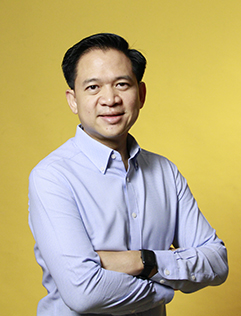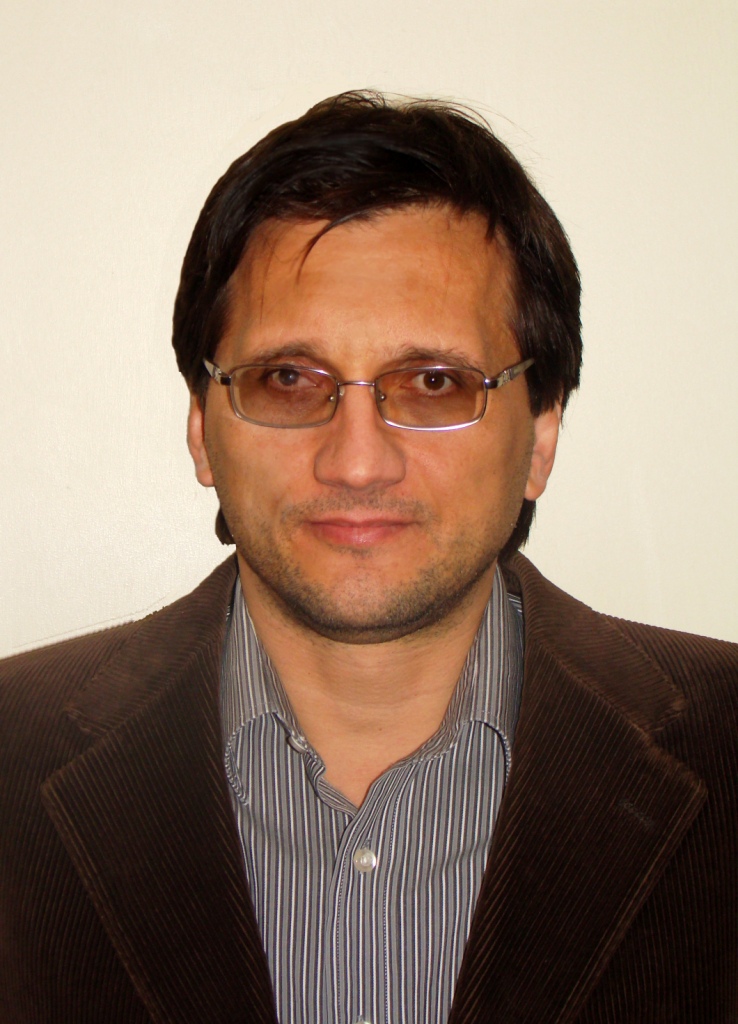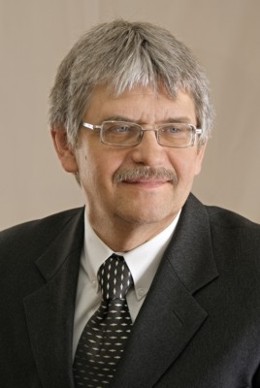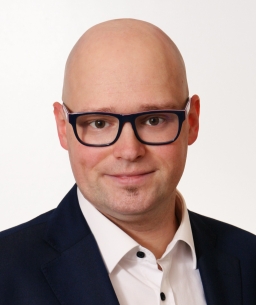QUICK LINKS
Keynote Speakers
 Prof. Alexander Korsunsky,
Prof. Alexander Korsunsky,
Vice President, Trinity College, Oxford University,
UK
Editor in Chief, Materials & Design
Alexander Korsunsky received his degree of Doctor of Philosophy (DPhil) from Merton College, Oxford, following undergraduate education in theoretical physics. His current appointment is Professor of Engineering Science at the University of Oxford and Trinity College. He has given keynote plenaries at major international conferences on engineering and materials. He has developed numerous international links, including visiting professorships at Universitá Roma Tre (Italy), ENSICAEN (France) and National University of Singapore.
Prof Korsunsky’s research interests concern developing improved understanding of integrity and reliability of engineered and natural structures and systems, from high-performance metallic alloys to polycrystalline ceramics to natural hard tissue such as human dentin and seashell nacre.
Prof Korsunsky co-authored books on fracture mechanics (Springer) and elasticity (CUP), and published over 200 papers in scholarly periodicals on the subjects ranging from neutron and synchrotron X-ray diffraction analysis and the prediction of fatigue strength to micro-cantilever bio-sensors, size effects and scaling transitions in systems and structures.
Support for Prof Korsunsky’s research has come from EPSRC and STFC, two major Research Councils in the UK, as well as also from the Royal Society, Royal Academy of Engineering (RAEng), NRF (South Africa), DFG (Germany), CNRS (France) and other international and national research foundations. Prof Korsunsky is a member of the editorial board of Journal of Strain Analysis published by the Institution of Mechanical Engineers, UK (IMechE).
Prof Korsunsky is consultant to Rolls-Royce plc, the global aeroengine manufacturer, whom he advises on company design procedures for reliability and consistency. He spent a period of industrial secondment at their headquarters in Derby, UK (supported by RAEng), and made recommendations on R&D in structural integrity.
Prof Korsunsky plays a leading role in the development of large scale research facilities in the UK and Europe. He is Chair of the Science Advisory Committee at Diamond Light Source (DLS) near Oxford, UK, and Chair of the User Working Group for JEEP (Joint Engineering, Environmental and Processing) beamline at DLS. These activities expand the range of applications of large scale science to problems in real engineering practice.
Prof Korsunsky’s research team at Oxford has involved members from almost every part of the globe (UK, FR, DE, IT, China, India, Korea, Malaysia, South Africa).

Prof. Kwang Leong Choy,
University College London, UK
Kwang Leong Choy [D.Phil (oxon)., DSc, FIMMM, FRSC] is the Professor of Materials Discovery and the Director of the UCL Institute for Materials Discovery at University College London (UCL) since 2014. She obtained her Doctor of Philosophy (D.Phil.) in Materials Science from the University of Oxford and Doctor of Science (D.Sc.) in Materials from the University of Nottingham. She has been employed at University of Oxford, Imperial College London and University of Nottingham before joining UCL. She has extensive experience in in materials creation, discovery and exploitation of eco-friendly, cost-effective and sustainable high performance thin films and nanomaterials processing technologies, especially for clean energy and engineering applications. She has authored over 230 peer-reviewed publications, including 5 books and 20 patents in nanomaterials, thin films and coatings for structural, functional and biomedical applications. She is the recipient of Grunfeld Medal Prize and has given over 150 keynote papers/invited lectures and conference session Chairman. She is leading a multidisciplinary research team ranging from material scientists, chemists, physics, coating specialists, bioengineering, nanobiotechnology, and engineers. Her team is conducting cutting edge research and technology exploitation of high performance, eco-friendly and cost-effective processing of new nanostructured materials, nanocomposites and superthin/thin/thick films coated products for thin film solar cells, clean energy, energy storage, electrical, optoelectronics, environment, health care, and biomedical applications. She has been elected to several prestigious fellowships such as Fellow of the Institute of Materials (2007-present), Royal Society of Chemistry (2010 - present), European Science Foundation NANO network (2008-2014), Chartered of Science, CSi (2007- present), as well as on editorials boards (Editorial Board of Nano-Micro Letters, Journal of Nanomaterials, and Guest Editor of “Surface Engineering” and “Chemical Vapour Deposition”). She has been the Founder, Inventor and Director of Innovative Materials Processing Technologies Ltd and Co-Founder of Southside Thermal Sensing (spin-out companies from Imperial College London). She was awarded a Visiting Professorship (2001/03) by the Swedish Engineering Research Council at the University of Uppsala, Visiting Professorship for Senior International Scientist at Ningbo Institute of Materials Technology and Engineering (NIMTE, 2010/2012), and Chinese Academy of Sciences (2011/2013). She has secured and managed numerous multimillion pounds national and European flagship research programmes with extensive collaboration with academia and industry. She has also established multi-million pound state-of-the art nanomaterials, innovative thin/thick films processing and characterisation facilities.
 Prof.
Pranut Potiyaraj
Prof.
Pranut Potiyaraj
Chulalongkorn University,
Thailand
Professor Pranut Potiyaraj leads a
team of forefront researchers as the
Director of Metallurgy and Materials
Science Research Institute (MMRI),
Chulalongkorn University while
conducts his teaching and research
supervising in polymers and textiles
at Department of Materials Science,
Faculty of Science, Chulalongkorn
University. He received his B.Sc.
with honors in Materials Science
from Chulalongkorn University,
Thailand in 1994 before
accomplishing his Ph.D. in Textiles
from The University of Manchester
(formerly UMIST), UK in 2000. In
2020, he has been awarded the
Fellowship of The Textile Institute,
UK for achieving a major personal
creative contribution in the textile
field. His research specialization
included polymer and rubber
composites for advanced
applications, waste utilization,
bioplastics, 3D printing, and smart
textiles for wearable sensors.
 Prof. Gennady Chitov
Prof. Gennady Chitov
Laurentian University, Canada
 Prof.
Leonid Stupishin,
Prof.
Leonid Stupishin,
Southwestern State University, Russia
After graduating from the Kursk
Polytechnic Institute, he taught
some courses as a lecturer strength
of materials and structural
mechanics department. The issues of
stability of plates and shells were
investigated both experimentally and
analytically. The desire to find the
best solutions for building design
projects led to work in the field of
optimal structural design.
Carried out his doctoral work at the
Moscow Civil Engineering Institute
in 1985. Research interests have
focused on non-linear problems of
the optimal design of spatial
structures such as shells.
As lecturer of strength of materials
and structural mechanics department
of Kursk polytechnic institute he
developed research on matrix methods
for calculating structures and the
finite element method as applied to
problems of optimal design of
structures. Methods of analysis and
synthesis of structures, including
smart systems, were in his area of
interest.
In 1996, he published his first work
on the study of critical energy
levels criterion of solid deformable
bodies, which remains in the focus
of his scientific interests to the
present. Composites design issues
were developed by him in connection
with the examination of building
structures at nuclear power plants.
Actively conducted work on the
inspection of buildings and
structures of Hazardous Production
Facilities in the Kursk region.
1999- 2018 chief of «Urban, road
construction and structural
mechanics» department. At the same
time, he leads the certification
body and the laboratory for
certification of building materials
and structures. He is the head of
training programs for builders. In
2013 receives the title of
Professor.
Currently, the focus of interests is
focused on the development of the
theory of critical energy levels of
a solid deformable body, the
theoretical basis of which is the
mathematical theory of the
eigenvalue problem. The developed
theory allows one to describe the
phenomena of limit states design
from a single point of view, and to
predict the sequence of destruction
of buildings structures.
Currently, L. Stupishin is a
professor at the Department
"Structural and Theoretical
Mechanics" of the NRU MGSU. He
published more than 250 papers, 15
textbooks and monographs, 10
invention patents and registered
software products.

Prof. Mostapha Tarfaoui,
ENSTA Bretagne, France
 Assoc. Prof. Andrzej
Katunin,
Assoc. Prof. Andrzej
Katunin,
Silesian University of Technology, Poland
Andrzej Katunin received his
doctoral degree (PhD) from Silesian
University of Technology in
mechanics of composites in 2012 and
habilitation (DSc) from the same
university in non-destructive
testing of materials in 2015. He is
currently serving as an associate
professor at the Silesian University
of Technology on a research
position. His main scientific
interests cover mechanics of
composite materials, primarily
fatigue, fracture, themomechanical
behavior, non-destructive testing
using various techniques and
post-processing for enhancement of a
performance of these techniques as
well as development of conductive
composite materials based on
intrinsically conducting polymers.
He implemented several internships
at the Technical University of
Dresden (Germany) awarded by the
Foundation of Polish Science,
University of Porto (Portugal)
awarded by the Foundation of Polish
Science, University of Lisbon
(Portugal) awarded by the Polish
National Agency for Academic
Exchange, and École Centrale de
Nantes (France) awarded by the
French Government. He is authored or
co-authored more than 280
publications, including 6 books on
fatigue, aircraft structures,
non-destructive testing, and fractal
geometry, as well as 3 granted
patents in electrically conducting
composites and non-destructive
testing. He received numerous
awards, including stipends from the
Foundation for Polish Science,
stipends for the best master and PhD
theses awarded by FIAT Automobile,
Polityka Scientific Award in
technical sciences, and the
scholarship from the Minister of
Science and Higher Education of
Poland for outstanding young
scientists. He is a member of the
European Society for Composite
Materials (2010-present), Polish
Society of Composite Materials
(2012-present), and Polish Society
of Technical Diagnostics
(2015-present), and serving as
editorial board member in 4
journals.
His current scientific activities
are focused on prognosis of behavior
of composite structures after
low-velocity impact loading,
thermomechanical effects during very
high cycle fatigue, and evaluation
of corrosion severity in aircraft
structures using optical
non-destructive testing techniques.

